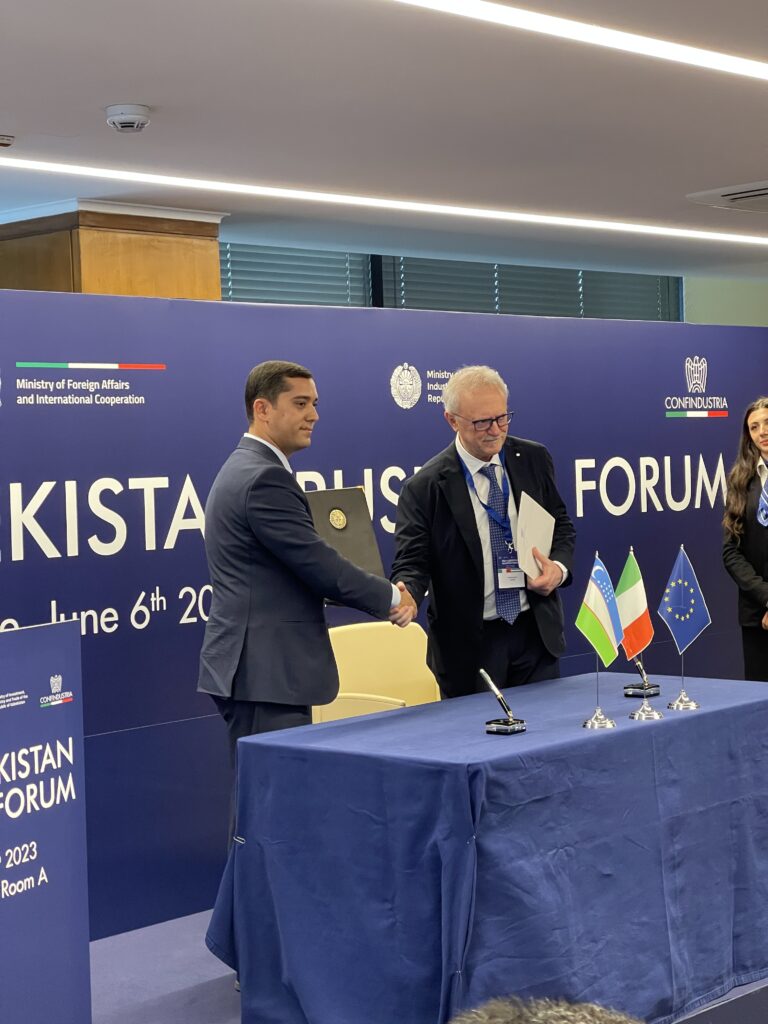Agreement signed between Uzbekistan and the new start-up founded by the partners
Projects start somewhere and then travel on their own feet. Or on their wheels, sometimes. Starting from Salerno, passing through Piedmont and Emilia, the LIFE-SAVE project now reaches Central Asia, an area experiencing strong development.
The collaboration agreement was signed in Rome on June 6th with the “Agency for Innovative Development” of Uzbekistan, represented by Olimjon Tuychiev. The signing on behalf of Italy was done by Gianfranco Rizzo, CEO of SunMotive. The start-up, founded by eProInn and ATS (Mecaprom), both partners in the LIFE-SAVE project, is an outcome of the project itself. Its goal is to bring to the market the conversion kit for conventional cars into hybrid-solar vehicles developed with the support of European funding.
The signing took place during the “Italy-Uzbekistan Business Forum“, organized by the Ministry of Foreign Affairs and International Cooperation, in collaboration with ICE Agency and Confindustria, with the aim of defining a joint venture for the eco-conversion of cars into hybrid and hybrid-solar vehicles. The agreement accelerates the industrialization process of the kit, still delayed in Italy by some legislative limitations.
During the meeting, which took place at the Confindustria headquarters in Rome, the Uzbek partners had the opportunity to see and test the latest prototype of the project (the VW Polo in the photo).

Why Uzbekistan?
Why Uzbekistan specifically? It is the most populous country in Central Asia and has experienced consistent GDP growth since 1996. Trade exchange has grown by 32% compared to last year (reaching 535.4 million euros), with a prominent role played by Italian exports, making Italy the second-largest European trading partner of the Central Asian country in 2022.
Economic development and population density have contributed to the deterioration of air quality, a global issue that knows no borders, accompanied by the ever-increasing need to work towards containment. Our technology is designed to specifically address this type of need, fitting into a context where the option to choose other solutions (such as purchasing new hybrid or electric vehicles) is limited due to various factors (infrastructure and economic).

